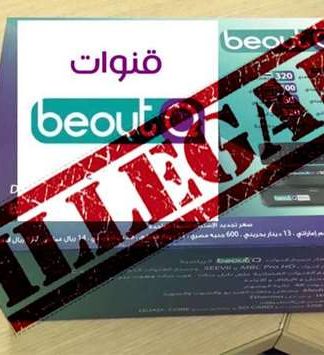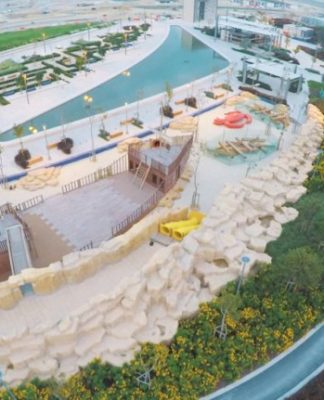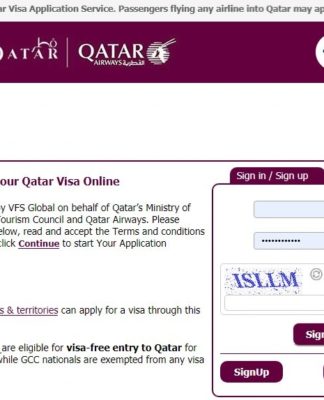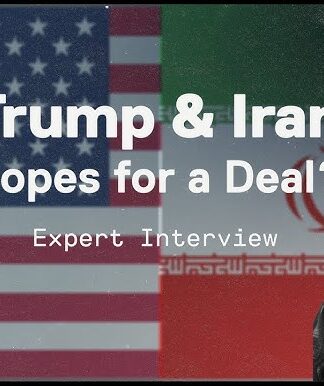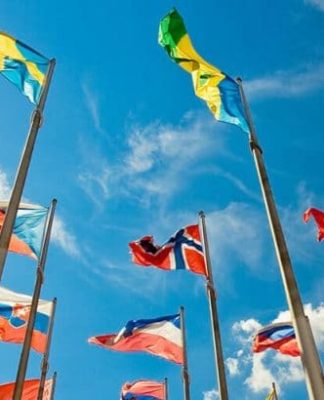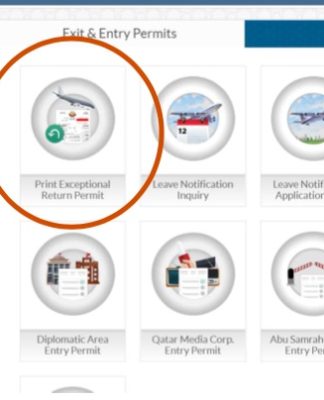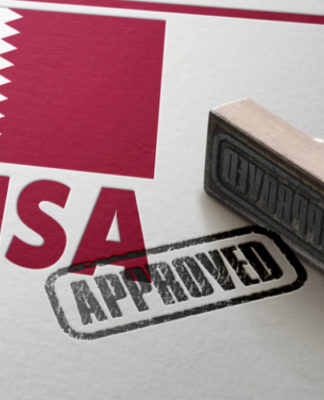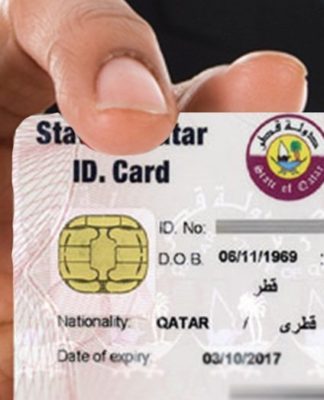Cityscape Qatar 2018: An ever-improving roadmap for sustainable growth

Qatar’s real estate sector contributes a significant share in the country’s entire GDP, with infrastructure projects accounting for the highest spending. The market continues to expand, thanks to a high immigrant population, economic diversification and infrastructure development.
A new draft law recently approved by the cabinet on regulating the ownership of real estate by non-Qataris, along with tax incentives and a balanced budget, are expected to trigger growth and help the country reach an 8 percent growth mark by 2019.
In line with the requirements of Qatar’s sustainable development agenda, the seventh edition of Cityscape Qatar 2018, an annual event, was unveiled at the Doha Exhibition and Convention Center (DECC) on Sunday to celebrate the rapidly growing real estate sector. The event was inaugurated by HE the Prime Minister and Interior Minister, Sheikh Abdullah bin Nasser bin Khalifa al-Thani.
Minister of Transport and Communications, HE Jassim bin Saif al Sulaiti, informed the gathering that Cityscape Qatar 2018 will contribute to supporting the national economy by promoting various development projects.
Leading national and international developers, including Qatar Rail, United Development Company (UDC), Qatari Diar and Katara Hospitality congregated at the DECC and a number of agreements were signed.
Qatar Rail and Qatar Insurance Group signed an agreement for the first naming rights. The station naming rights is one of Qatar Rail’s enterprises intended to form a partnership with prominent local and international companies to advance their services at the stations. In another deal with Qatar Rail, Qatar National Bank (QNB) was assigned as the official Acquirer Bank for all TravelCard and Fare Media payments. Under the agreement, Qatar Rail will accept payments made with all major credit and debit cards issued in Qatar and worldwide.
Ooredoo will play a major role as communications partner. As part of its agreement with Qatar Rail, the communications giant will guarantee that the users will benefit from uninterrupted high-speed communication services during their journey through the stations and aboard the Lusail Tram.
Other attractions at the expo were Doha Metro staff uniform with its sleek, modern lines and matching colours, the design of the Doha Metro cards, high-quality virtual reality ride onboard and Transit Oriented Developments (TOD) – high density, mixed-use, pedestrian-friendly developments around rail transit stations that would act as community hubs within walking distance.
Qatar accepts invite to attend the Arab League summit in Riyadh. Will it lead to softening of the relationship?

Qatar has formally been invited to attend this year’s Arab League summit, set to be held in Riyadh on April 15. Saudi Arabia had earlier postponed the summit to April, saying the original date in late March clashed with Egypt’s presidential election. According to Lulwa al-Khater, a spokesperson for Qatar’s foreign ministry, Qatar will take part but has yet to decide on the level of participation.
Maybe, just maybe, the upcoming summit could lead to the thawing of the bitter relationship between Qatar and the Arab bloc, although going by the attitude of Crown Prince Mohamed bin Salman, who categorically pointed out earlier in March that he would not tolerate outside mediation in the resolution to the Gulf crisis, the possibilities are remote.
But going by the historical role the League has played, there may be some hope of at least a start of reconciliation.
After all, the League’s prime objective is to draw closer the relations between member States and co-ordinate collaboration between them, to safeguard their independence and sovereignty, and to consider in a general way the affairs and interests of the Arab countries. It facilitates political, economic, cultural, scientific, and social programmes designed to promote the interests of the Arab world.
In the past, it has served as a forum for the member states to coordinate their policy positions, to deliberate on matters of common concern, to settle some Arab disputes and to limit conflicts such as the 1958 Lebanon crisis.
Saudi Arabia, Egypt, Bahrain and the United Arab Emirates imposed a sea, land and air blockade on Qatar on June 5, 2017, accusing it of supporting terrorism and destabilising the region. Doha has consistently denied these charges.
Starting with only six members in 1945, the Arab League now has 22 members. Qatar joined in 1971. One of the significant agendas will be to seek to prevent Israel from gaining a rotating seat on the U.N. Security Council in 2019.
Knowledge economy: Qatar’s increasing focus on developing ‘human capital’ is an integral part of its national vision

In the last few years, Qatar has emerged as Asia’s leading education hub and global center of learning. It is a direct result of its rising position as a destination of choice among overseas students seeking international quality education. The tiny Gulf nation is home to a number of international universities and academic institutions with best-in-class and diverse range of courses. The Government’s effort to enhance and improve the education sector is aligned with the goal of knowledge-driven economic development and growth.
For way too long, Qatar has been reliant on foreign workforce to stir it from an oil and gas-based economy to one that is more service and knowledge oriented. Recognising the changing dynamics, the country realizes that becoming an education hub will support its efforts to train and retain the large expatriate population of students as well as attract international students and workers from the region and beyond.
It has been almost a decade since the launch of the Qatar National Vision (QNV) 2030 development plan, providing the wealthy state with a blueprint of transformation and growth. The country has been one of the top advocates of the significance of education
Recently, in a high-level panel discussion organised by the Education Above All Foundation (EAA), in cooperation with the United Nations High Commissioner for Refugees (UNHCR) in Geneva, HH Sheikha Moza bint Nasser, Chairperson of EAA and advocate for the UN Sustainable Development Goals, urged the global community to facilitate access to quality education for displaced children and to enforce severe penalties on perpetrators of armed conflict. She stated that “Education must be given priority as it is the tool for the children of the present and future.”
In line with the stated approach to prioritise education and ensuring quality education within the country, Qatar’ Ministry of Education and Higher Education outlined its Strategic Plan from 2017-2022, including development and expansion of early education and the promotion of attractive educational environment.
The most recent initiative taken by the Ministry of Education and Higher Education to promote quality education environment is designing a new Career Advising System (CAS), which is all set to be rolled out in the current academic session across public secondary schools in Qatar. The new CAS is a result of an MOU between Qatar Career Development Centre (QCDC), a member of Qatar Foundation (QF), and the Ministry of Education and Higher Education.
The new CAS is designed to cater to the futuristic needs emerging from Qatar’ social and economic environment. It is equipped with diverse and innovative components, as well as psychometric and personality assessment tools to help students identify the most appropriate academic and career paths in line with needs of the job market in the country.
Another major event, Career Guidance Stakeholders Platform 2018, was organised in line with Qatar Foundation’s efforts to promote career guidance in Qatar. The event, themed ‘Moving Operationally to Strategically Enhance Career Guidance in the State of Qatar’, was attended by 250 policy-makers, decision-makers and senior executives from various government institutions from Qatar and international organisations from the rest of the world at the Qatar National Convention Centre.
As stated by QCDC director, Abdulla al-Mansoori, “Nation-building requires a diverse set of competencies, skills, and jobs to ensure self-sufficiency when it comes to the local labour force required to bolster the state’s economy at present and in the future”. The initiatives to upgrade and direct talent in the country may be derived by Qatar’s ambition to become self-sufficient in the coming years to meet its workforce demand.
The innovation-driven approach highlighted in a recent event organised by HBKU’s College of Science and Engineering (CSE), entitled Qatar Towards a Smart Future, indicates that the move towards a knowledge-based economy is equally a strategic bend towards diversification of economy by becoming a major hub of quality education in the region.












